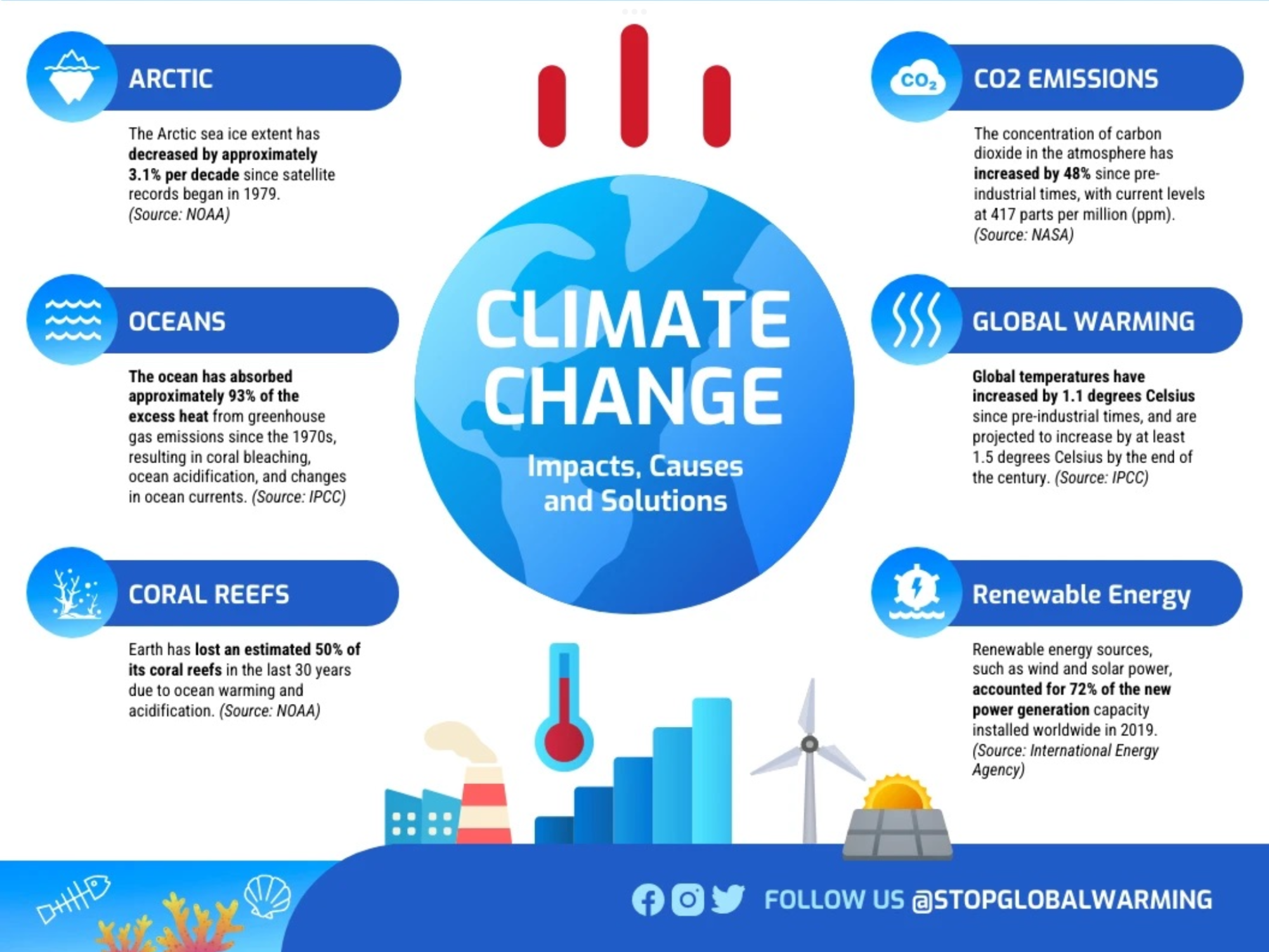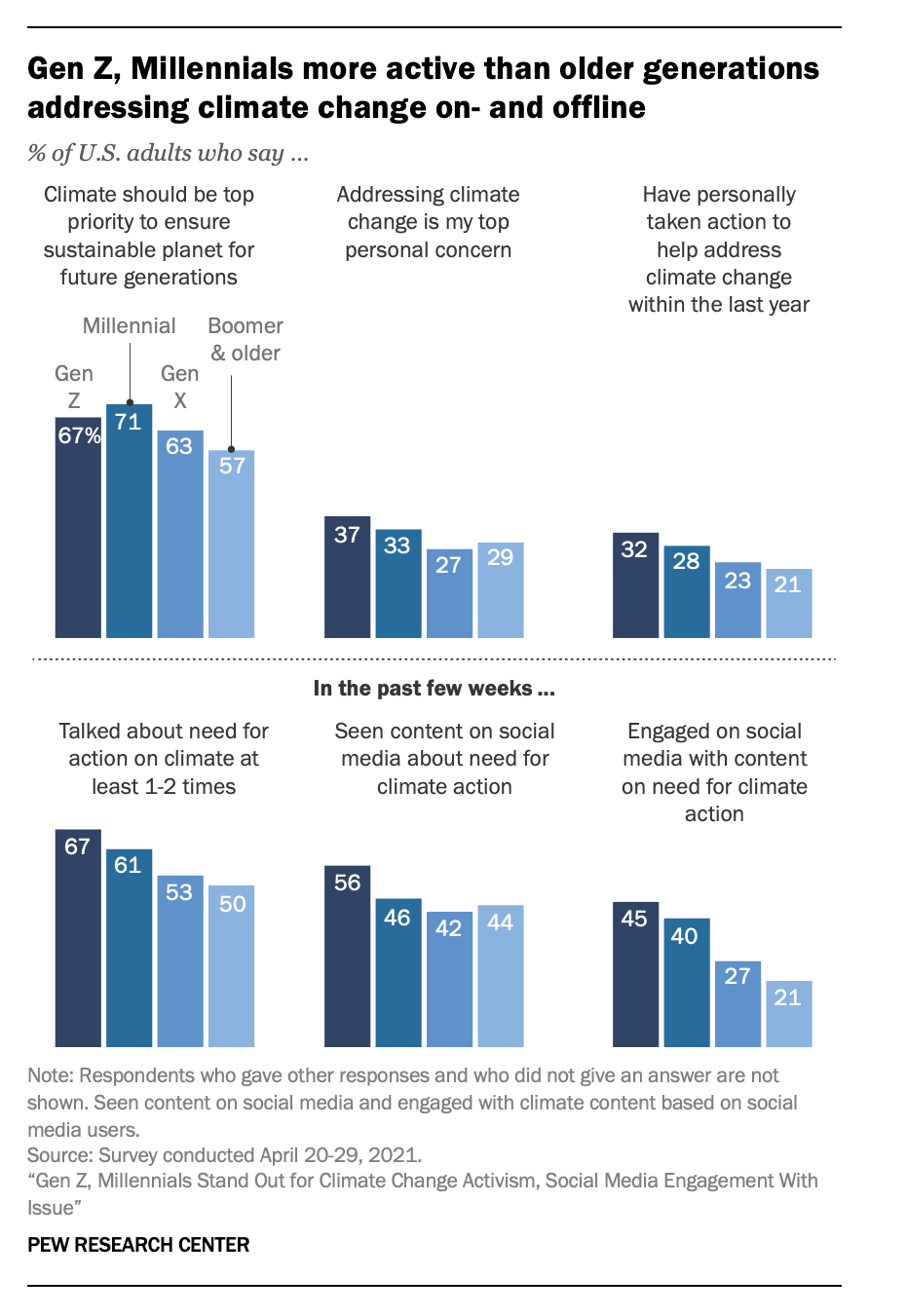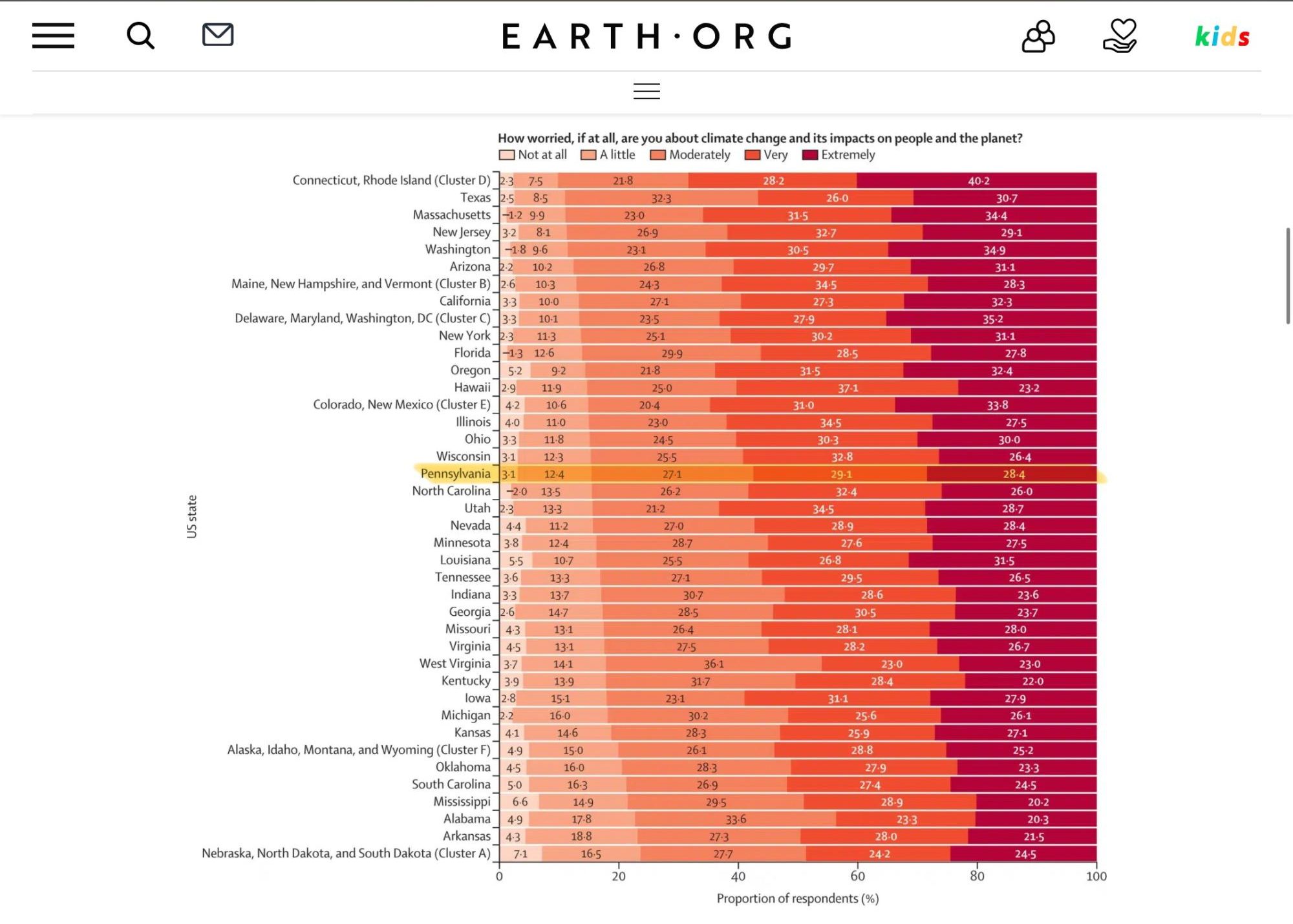The world we live in is forever changing. It is increasingly warming up, sea levels are rising, the weather is getting more intense, natural disasters such as forest fires and droughts are more frequently occurring, and more. This is known as climate change.
Climate change is described as “long-term shifts in temperatures and weather patterns,” and is proven to be a trend driven by human activity. This change is world temperature over time affected many generations since it has been observed, but each generation has responded differently. From a national to a local level, climate change has impacted and will continue to impact the lives of many. The exploration of how much these different generations know about climate change and how they respond is crucial in understanding the impact of this global temperature and weather pattern.
Generation Z, or Gen Z, are those born between 1996 and 2012, and Generation Y, also known as Millennials, are those born between 1981 and 1996. It has been observed that Gen Z and Millennials are “more active than older generations in addressing climate change on- and offline.” Below a chart from pewresearch.org is shown.
In general, Gen Z and millennials are more likely to engage with climate change education and to advocate for or against further action. This could be due to the online presence of these generations, but there may be more to the increased awareness and care for climate change than meets the eye. Young Americans seem to genuinely care about climate change, as seen through the earth.org poll that asked how worried Americans are “about climate change and its impacts on people and the planet.” An image from the poll results have been posted below.
Through these polls, it is clear that climate change awareness and advocacy are more prevalent in the younger generations, which could have to do with online presence, increased education, or the fact that young people can see and feel the effects around them. This investment in climate change can be seen at many different levels of life. Whether socioeconomic, personality, or political views, young people are more likely to care globally about climate change, which could be a huge driving factor in future political, social, or economic campaigns driven by Generation Z.
Young people specifically Gen Z often care on a national and global level, but there is also evidence that this generation cares on a local level. From a Norwin High School Poll of over 20 students, 81% of students polled said that climate change has a strong or slightly negative effect on their generation, Generation Z. One student, senior Niko Kelly, stated that climate change has a strong negative effect on Generation Z.
“It actually affects us,” Kelly said. “Older generations don’t care because they’ll die before it becomes a serious problem if it’s not already. We, on the other hand, are going to see the dire consequences when we get older.”
Interestingly, around 62 percent of students polled in the Norwin poll said that they believe their peers are extremely or somewhat uneducated. This shows that along with the overwhelming care for climate change in Generation Z, there is also a claim from the generation itself that there is always more for those around them to learn. This could also imply that older generations are those around them and that Generation Z feels that most of the people in older generations are uneducated.
“I think it’s more talked about now so it’s engraved into our brains at a young age, while their mindset is that you can’t teach an old dog new tricks,” sophomore Madison Hearn said. “It wasn’t an issue, so they don’t see an issue.”
At Norwin High School, there is no common way for students to recycle unless their teachers put out their own recycling bins for students to use, even though 80 percent of students polled said that Norwin should implement recycling bins. This shows the difference between the administration, who is mainly Generation X and born between the years of 1965 and 1981, and the students that consist of Generation Z.
One student polled, freshman Keir Davis, believes that Norwin should include recycling bins throughout the school.
“Norwin should include recycling bins to reduce waste and help the environment,” Davis said. “A lot of things that are recyclable are reusable or can be made into other things.”
From the need for recycling bins at Norwin to the need to stop climate change as a whole, Gen Z has a commonly accepted obligation for change and for the protection of the future. And so, the future of climate change looks to Gen Z, the generation that holds their place in high schools, colleges, and jobs right now. This future will only be held in place if young people care, which it is evident that they do, and continue to care. No matter what happens, Gen Z is the leader of climate change advocacy, interest, and action. Gen Z, the future is in your hands.











